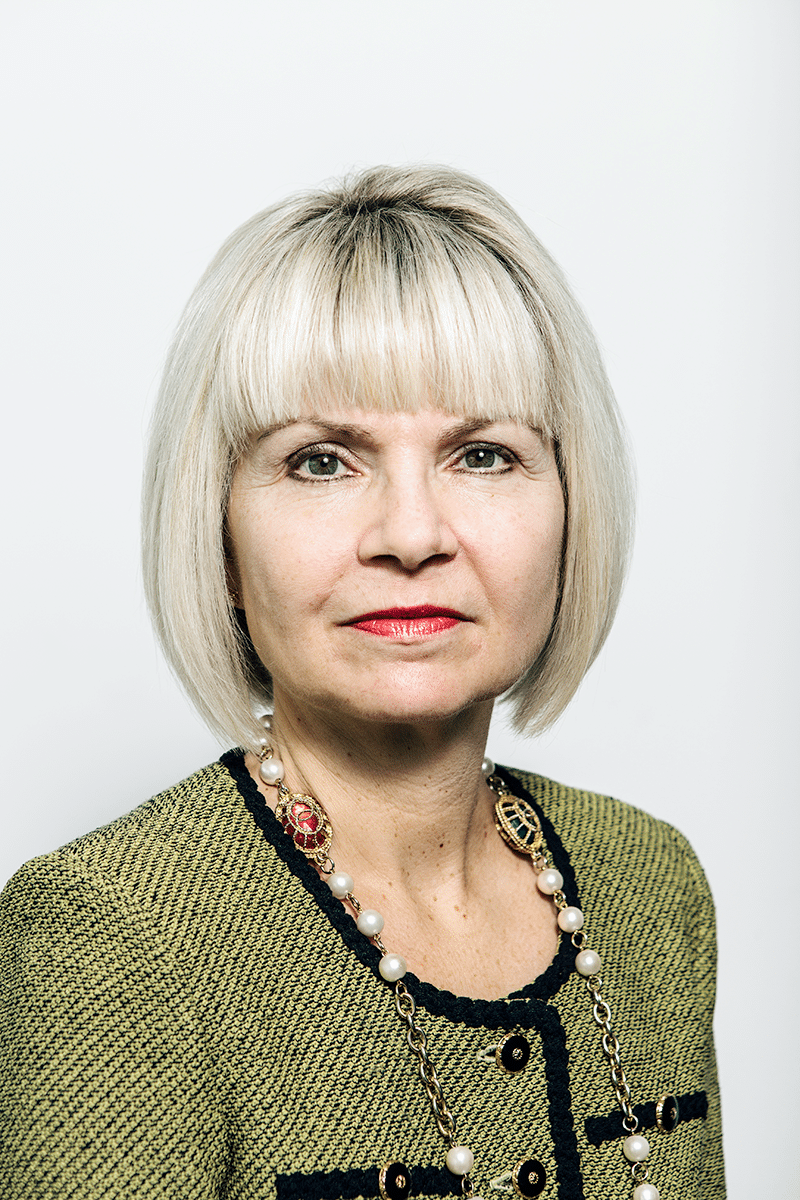The voice of the American CEO is forged at The Business Roundtable. The association of nearly 200 business leaders advocates for progrowth public policies and enables the US economy to thrive.
“Everything we do is focused on creating a more favorable landscape for business,” says general counsel Maria Ghazal. “And our chief executive officers drive the innovation we need to succeed.”
As general counsel, Ghazal’s work at The Business Roundtable is unique. “Working with chief executive officers who are focused together on best policies is terrific,” she says. “The CEO engagement is what distinguishes The Business Roundtable from other organizations like it, and it’s what drew me in over ten years ago and keeps me excited to come to work every day.” Ghazal is one of thirty professionals doing tremendous work on behalf of The Business Roundtable. As staff they are assembled into a strategy team, a policy team of subject matter experts, a communications team, as well as coordinators and support staff to implement The Business Roundtable strategy. Operating with such a lean staff allows them to regularly bring in top-notch experts to help with policy issues, and as a result, The Business Roundtable has worked with every top law firm in Washington, DC, over the last ten years on policy and legal matters.
Policy goals at The Business Roundtable are set by member chief executive officers, and the strategic and tactical plans to achieve those goals are developed by the staff. “We make recommendations for how to get from the goal to the action,” Ghazal says. To do this, The Business Roundtable’s staff regularly engage chief executive officers in dialogue in order to fully understand their ultimate goals as individuals. This information provides them with vital information, “so when we construct our recommendations, we have a better understanding of how to guide the organization through a changing landscape.”
At The Business Roundtable, a solution is never just a simple “yes” or “no,” but a conversation aimed at finding a solution or idea that will best promote economic growth. The organization’s policy positions contribute to these goals and are informed by facts and data collected from many reports put out by The Business Roundtable and others hired to do so on their behalf. All of this information influences the reason behind the organization’s advocacy and informs their constructive approach.
Member chief executive officers select to join one of the ten policy committees, each chaired by a different member. Ghazal works most closely with John Hayes, president and chief executive officer of Ball Corporation and chair of the corporate governance committee, and this year they have focused securities law and regulations. They have also updated The Business Roundtable’s Principles of Corporate Governance, the organization’s premier publication that provides US public companies with the most modern guidance for upholding the highest ethical standards and delivering long-term economic value. The Governance Committee is also working to reform the shareholder proposal process to ensure that all proposals benefit the majority and don’t jeopardize a company’s long-term value.
“It helps having a chairman like Hayes who is very engaged with Congress,” Ghazal says. “But as with all the work we do, the hardest part is getting from agreeing that we need change, to the legislative or regulatory action that creates it.”

It’s the combination of commitment, knowledge, and experience among members that gives The Business Roundtable immense credibility with policy makers and allows them to effectively advocate across political aisles. “People on the Hill say, ‘I know that when I receive something from The Business Roundtable, it’s been sourced and checked and it’s accurate,’” Ghazal says. “They understand that our mission to pursue the best policy and regulatory environment for economic growth benefits our whole society.”
But even with a stellar reputation, being a proactive agent for change in government policy requires tenacity, patience, and consistency. After The Business Roundtable identifies an issue and commits to pursuing it, they continue until it’s resolved, no matter how long it takes. For example, in the wake of the financial crisis of the mid-2000s, The Business Roundtable supported the need to examine financial regulations. However, when the Dodd-Frank Act was passed in 2011, it was not supported by the organization, and it quickly became apparent that the legislation was even more broad-sweeping and unfavorable for growth than The Business Roundtable feared.
As part of Dodd-Frank, Congress enacted overly broad derivatives regulation that limited the ability of companies to use derivatives to manage and reduce systemic economic risk. It produced the opposite outcome of what was intended by derivatives regulation. The new rules impeded economic growth rather than stabilized, maintained, and encouraged it. So The Business Roundtable committed to what turned into a long battle with Congress over derivatives trading.
However, certain legislation was swept into the vast and complex set of new laws that The Business Roundtable believed would actually impede economic growth rather than stabilize, maintain, and encourage it. So they committed to what turned into a long battle with Congress over derivatives trading.
“It was such a technical law,” Ghazal says. “Convincing lawmakers to listen to us was a big challenge.” Business Roundtable members had many conversations with individual lawmakers and followed up with resources to educate them and their staff on the issue. They explained that not all derivatives are risky and sometimes can even be used to reduce risk.
It took six years and every advocacy tool in the box, but The Business Roundtable was celebrated in 2015 when the US Congress exempted companies of derivative transactions that reduce economic risk. It was a big win for The Business Roundtable and demonstrated the great importance of an organization that fights for the best interest of the economy.
“Everything we do is focused on creating a more favorable landscape for business, and our chief executive officer drive the innovation we need to succeed.”
These days, The Business Roundtable is focused on four core issues that they believe will have the greatest economic impact if properly addressed by Congress. One is modernizing the business tax system and updating tax code that hasn’t been revisited in over thirty years. Another is expanding markets. A third is rebuilding US infrastructure, and fourth is fixing the country’s broken immigration system. On a corporate governance level, Ghazal and Hayes are evaluating unaccountable behavior of advisory firms and considering ways of providing greater oversight. All of these are daunting and complicated issues that will require much of The Business Roundtable’s famed expertise, diligence, and patience. Fortunately, the team is up for the challenge thanks to an unwavering belief in the power of education, commitment, and their unified voices.
As an organization led by chief executive officers, The Business Roundtable is on a mission to improve the business landscape. As general counsel, Ghazal is on a personal mission to support members’ goals by making the law more workable and to pursue smarter approaches to regulation. But for The Business Roundtable members and employees alike, everything comes back to the heart of the mission: to conduct business around a table with many voices, and collectively work for economic growth and the greater good.


